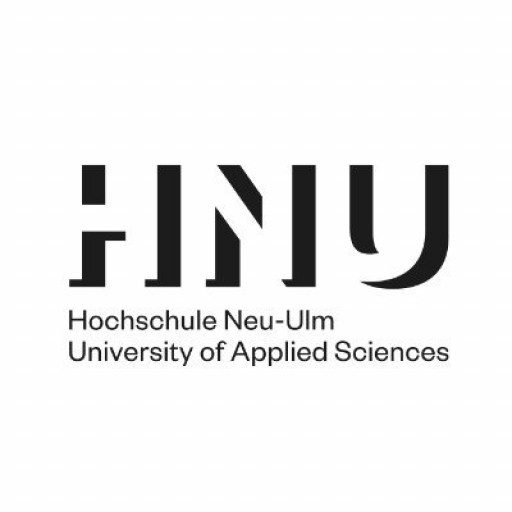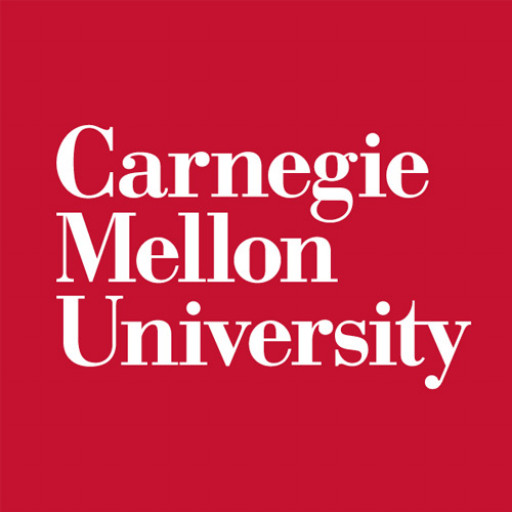Photos of university / #uni_hamburg
Master's degree programme in Intelligent Adaptive Systems at the University of Hamburg offers an interdisciplinary and innovative curriculum designed to equip students with the theoretical knowledge and practical skills necessary to develop and manage intelligent systems that can adapt to complex environments. The programme focuses on the integration of computer science, artificial intelligence, machine learning, data analysis, and cognitive sciences to create systems capable of autonomous decision-making and adaptive behavior. Students will explore topics such as adaptive algorithms, neural networks, machine perception, human-computer interaction, robotics, and real-time data processing. The curriculum emphasizes both foundational theories and hands-on applications, ensuring graduates are prepared for challenges in academia, industry, and research environments.
Throughout the programme, students engage in a combination of lectures, laboratory exercises, and project work, often collaborating across disciplines to simulate real-world problem-solving scenarios. The programme encourages innovation, critical thinking, and the development of novel approaches to designing intelligent systems that can learn from data, adapt to user needs, and operate efficiently in dynamic settings. Key components include coursework in machine learning techniques, system design, pattern recognition, and artificial intelligence ethics. In addition, students have opportunities to participate in research projects conducted by faculty members who are experts in their fields, allowing them to contribute to cutting-edge developments in intelligent systems.
The Master's programme prepares graduates for a variety of careers, including roles in robotics, autonomous systems, data analysis, software development, and research. It also provides a solid foundation for those wishing to pursue doctoral studies in related fields. The programme benefits from the university's strong links with industry partners, research institutes, and technology companies, thus offering students valuable internship and networking opportunities. Graduates will be equipped with the technical expertise, creative problem-solving skills, and interdisciplinary perspective necessary to innovate in the rapidly evolving landscape of intelligent adaptive systems.
Educational organisation
The Master's programme comprises 120 credit points, distributed between compulsory core modules (48 CP), selectable focus (18 CP) and extending modules (12 CP), and project work (42 CP).Semester one:
Software Architecture (6 CP)
Bio-Inspired Artificial Intelligence (6 CP)
Intelligent Robotics (6 CP)
+ 12 CP Focus Choice
Semester two:
Neural Networks (6 CP)
Databases and Information Systems (9 CP)
Algorithmic Learning (9 CP)
+ 6 CP Focus Choice
Semester three:
Research Methods (6 CP)
Project with integrated Seminar (12 CP)
+ 12 CP Extension Choice
Semester four:
Master's Thesis (30 CP)
Core Lectures:
Core lectures are compulsory for all students. This set of lectures conveys an in-depth understanding of different types of intelligent adaptive systems and introduces students to the most current research in the different topics. All core modules consist of a combination of lecture and seminar/tutorial to foster student participation and constant application of learned concepts.
Focus Choice:
Focus choice slots provide students with the opportunity to strengthen their background in a chosen field or deepen their knowledge in a field which complements the core modules. Focus modules will be chosen in consultation with an assigned adviser and can be selected from a list that aligns well with the overall focus of the Master's programme. This list contains single modules that supplement core lectures as well as suggested sets of lectures that together form a coherent focus area. It will be reviewed on a regular basis to reflect current research and to include newly emerged and complementary teaching areas.
Currently, the choices for focus options include:
- Language Processing
- Image Processing
- Robot Technology
- Mobile Systems and Networks
- Knowledge Processing
Extension Choice:
12 credit points can be selected from a range of modules taught at the Department of Informatics or other departments as well as independent study projects. In comparison to the focus options, these modules can be used to gain knowledge in fields that go beyond the scope of this programme, but are linked to its contents, e.g. psychology or biology. The modules are again chosen in consultation with an adviser to guarantee a sensible choice in alignment with the student's background and aims.
Project and Thesis
Having participated in lectures and seminars where the focus is usually on individual work, students take part in a group project before undertaking a research project that finally leads to the Master's thesis. The group project focuses on teamwork and the scientific exchange and defence of ideas to prepare students for a collaborative scientific environment. Students are encouraged to choose projects in preparation of their Master's thesis and to actively take part in research projects of a chosen area. Two to three students are expected to work as an independent group with a supervisor from the corresponding area. A seminar, where all groups meet, gives students the opportunity to present their work in an environment comparable to a scientific conference.
Finally, in the last semester, students work full-time on an independent research project that ends with submission of the final Master's thesis.
Part-time study is possible. Reference semesters are doubled, and required credit points per semester amount to half of those required in full-time study. Prerequisites for lectures must be met, with courses available only in winter or in summer to be taken at the next opportunity.
Study abroad unit(s)
No study abroad periods are planned within the curriculum.Forms of assessment
Assessment of lectures is generally via 30-minute oral exams. Few written exams. Seminars, tutorials, and the project are assessed through in-course work (e.g. software development, reports, and oral presentations).Course objectives
The IAS Master's programme is a research-oriented programme which aims to provide students with a comprehensive overview in intelligent adaptive systems. Students who successfully complete the course will have in-depth knowledge on the state of the art in neural networks and learning algorithms for intelligent systems and will know how to integrate these into robots, databases, and information processing systems. Through focus and extension choice slots, students can further select focus areas to deepen their knowledge in IAS core areas or to extend their study to other areas.Language requirements
All applicants must provide proof of their English language proficiency by (or comparable to):- CEFR/TELC level B2
- IELTS 6.5
- TOEFL (iBT 90, PBT 575, CBT 230)
- Cambridge CAE or CPE
Academic requirements
A Bachelor's degree from Universität Hamburg or another university in computer science or a related field in which 60 CP were acquired in the field of computer science, comparable to the curriculum of the BSc "Informatik" (Computer Science) at Universität Hamburg. Comparability of the degree will be established by the admission commission.Enrolment fees
There is a semester fee of 310 EUR per semester. This fee includes a semester ticket covering public transport in the Hamburg metropolitan area.Costs of living
We recommend that single students budget at least 800 EUR per month to meet personal expenses (accommodation, living, health insurance, books).Job opportunities
Students who enrol in a full-time programme will generally have only limited time for part-time jobs.As a rule, students who hold an international student visa may work for up to 120 full days or 240 half days per year. Further information on work regulations for international students at Universität Hamburg can be found here: http://www.uni-hamburg.de/piasta/beratung_e.html
Funding opportunities within the university
International full-time students may apply for merit scholarships or exam grants of Universität Hamburg. For more information, please use the provided link. We also recommend contacting our colleagues in the Department of International Affairs for further guidance.http://www.uni-hamburg.de/internationales/studieren-an-der-uhh/finanzierung-des-studiums_e.html
Arrival support
Students and researchers can find information on how to get started in Hamburg on the website of the PIASTA programme at the Universität Hamburg Department of International Affairs (http://www.uni-hamburg.de/piasta_e.html) and on the website of the Hamburg Welcome Center (http://english.welcome.hamburg.de).During the International Welcome Week organised by PIASTA, you will be able to get in touch with all the important institutions and contacts which are particularly useful for international students: http://www.uni-hamburg.de/piasta/veranstaltungen/international-welcome-week_e.html
Services and support for international students
The Universität Hamburg CampusCenter is the first port of call for all current and prospective students and offers information, services, and counselling. The PIASTA programme at the Universität Hamburg Department of International Affairs offers support and advice for German and international students, as well as cultural events and workshops.For more information, refer to: http://www.uni-hamburg.de/piasta and https://www.uni-hamburg.de/en/campuscenter.html
The welcome service of the Universität Hamburg Department of International Affairs is the first contact address for international visiting researchers and others: http://www.uni-hamburg.de/internationales/wissenschaft/service-international_e.html
Accommodation
Accommodation is available through the "Studierendenwerk" (students' services) or on the private market. The "Studierendenwerk" provides rooms in halls of residence, most of which are single rooms with shared kitchens and showers/WCs. We strongly advise students and researchers to arrange accommodation prior to arriving in Hamburg, as demand for affordable accommodation is sometimes larger than supply.For more information on how to find accommodation and how to plan your first steps in Hamburg, please refer to: https://www.uni-hamburg.de/piasta/beratung/doc/willkommen.pdf









